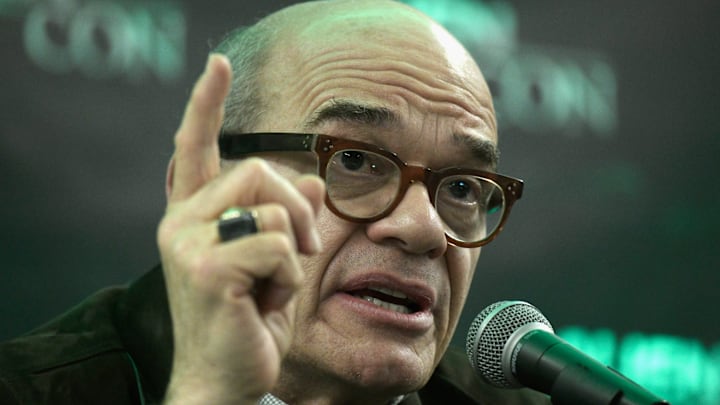Star Trek: Voyager had one of the best roster of characters and cast of actors and actresses in franchise history. So many of the talents stood out during the show's seven-season run, but the one name that is mentioned maybe more than most as having stood out above their colleagues was Robert Picardo.
Picardo played The Doctor, a hologram who was, over time, able to grow and develop his program. He became a better physician, a musician, a photographer, and eventually even a member of a family. He was constantly evolving and growing, and because of that, he became a character that the fandom loved.
Yet, one of the more controversial elements of his growth involved one of the reasons fans loved him so much. Voyager's ship had holo emitters in both the sickbay and the holo deck, essentially limiting the Doctor's travel to just those two locations. Ironically, a trip to the past would give the Doctor a holographic mobile emittor, allowing him to roam about freely, as long as his hologram maintained a connection with the device.
This was to give the character more opportunities to interact with the cast and guest crew, thereby broadening his ability to explore more. Thereby giving the character more possible story arcs throughout the show.
Some believe this was a mistake, Picardo himself at first, as The Doctor's limitations were part of his identity and how he struggled to get around them gave him a depth of humanity that was, yes artificially created, but nonetheless relatable.
While the concern existed that fans wouldn't relate to the Doctor as well, those concerns were unfounded, as part of the reason the Doctor got the mobile emitter was to give the Doctor more to do because the fans have latched onto him so readily.
The gimmick gave Picardo's character a unique chance to add to prior experiences and storylines by being able to retell those events in a different format, with The Doctor having a chance to react to what was going on. It expanded the depth of his character, by forcing him to adapt and grow.
This is made evident in the episode Latent Image from season five, where forced to pick between his friend Harry Kim and another member of the crew to save, The Doctor saved Kim, causing himself so much guilt that his program destabilized, forcing Janeway to erase those memories.
Because the trio were on an away mission, away from The Doctors' office and sickbay, it was a moment that only would've worked as well as it did if The Doctor had gone from his safety net. Had he been able to call for assistance, he may not have carried the grief needed to make the episodes one of the best in franchise history.
